An abscess tooth can cause severe pain and discomfort, often accompanied by swelling. While seeking dental treatment is essential for proper diagnosis and treatment, there are several home remedies that can provide temporary relief from the swelling and pain associated with an abscessed tooth. Here are ten effective home remedies for abscess tooth:
1. Saltwater Rinse: Rinse your mouth with warm salt water several times a day to reduce swelling and kill bacteria in the affected area.
2. Baking Soda: Create a paste with baking soda and water and apply it to the affected tooth for temporary relief from pain and inflammation.
3. Oregano Essential Oil: Dilute a few drops of oregano essential oil with carrier oil and apply it to the affected area for its antibacterial properties.
4. Cold Compress: Apply a cold compress or icy cold water on the outside of your cheek for 15 minutes to numb the area and reduce swelling.
5. Fenugreek Tea: Brew some fenugreek tea and let it cool. Use it as a mouthwash to soothe pain and reduce inflammation.
6. Clove Essential Oil: Dilute a few drops of clove essential oil with carrier oil and apply it to the affected tooth for its natural analgesic and antibacterial properties.
7. Thyme Essential Oil: Dilute a few drops of thyme essential oil with carrier oil and apply it to the affected area for its antimicrobial properties.
8. Hydrogen Peroxide: Rinse your mouth with a diluted hydrogen peroxide solution (3%) to cleanse the area and promote healing.
9. Oil Pulling: Swish a tablespoon of coconut oil around your mouth for 15 minutes, then spit it out to remove bacteria and reduce inflammation.
10. Garlic: Cut a fresh garlic clove in half and place it directly on the affected tooth. Garlic has natural antibiotic properties that can help fight the infection.
Remember, these remedies are temporary solutions to alleviate the symptoms of an abscess tooth. It is vital to visit a dentist to receive appropriate dental treatment to address the underlying cause of the infection.
1. Saltwater rinse

A saltwater rinse is a simple and effective home remedy for alleviating the symptoms of a tooth infection, providing temporary relief until you can seek professional dental treatment. This natural remedy helps reduce swelling and kill bacteria in the affected area.
To perform a saltwater rinse, you will need 1/2 teaspoon of table salt and 1/2 cup of warm tap water. Start by mixing the salt and water together until the salt is completely dissolved. It’s important to use warm water as it helps to dissolve the salt and provide some soothing relief.
Once the saltwater solution is ready, take a sip and swish it around your mouth for at least two minutes, focusing on the affected area. Make sure the saltwater reaches all corners of your mouth. Spit out the solution after rinsing, and do not swallow it.
For maximum benefits, repeat this saltwater rinse at least two to three times per day. The warm saltwater helps reduce inflammation, temporarily relieves pain, and promotes healing in the case of an abscessed tooth. However, it’s important to note that this remedy only provides temporary relief and does not substitute for proper dental treatment.
Remember to always consult with your dentist if you are experiencing severe tooth pain or if the infection persists. A saltwater rinse is a valuable tool in maintaining oral health, but professional dental care is essential for long-term dental well-being.
2. Baking soda
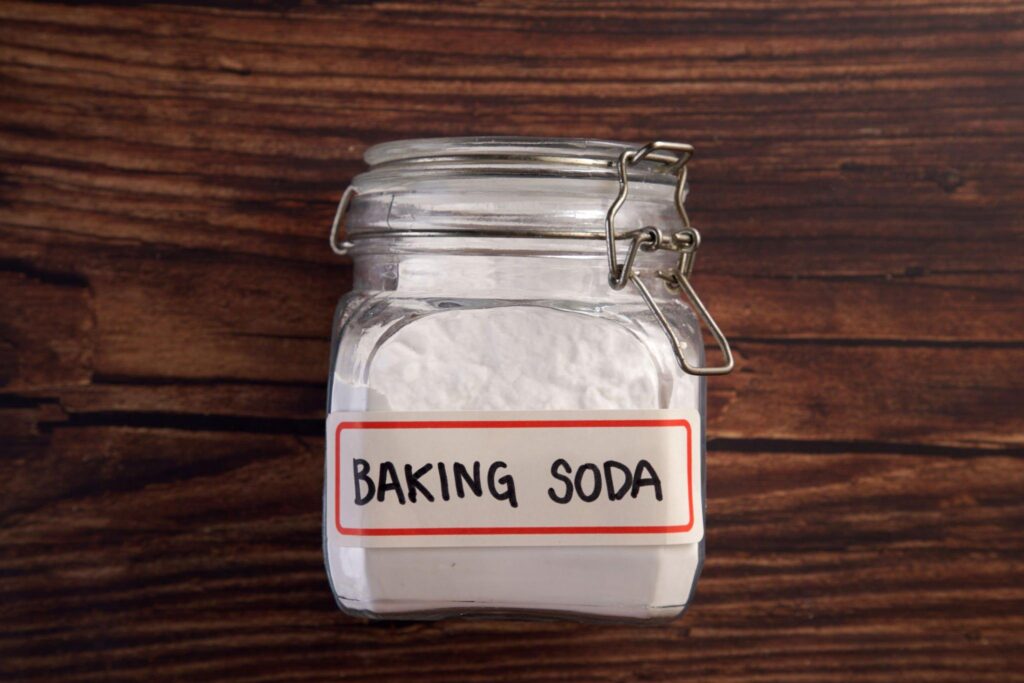
Baking soda, also known as sodium bicarbonate, is a versatile ingredient that can help alleviate tooth infections. Its antibacterial properties can reduce the number of bacteria in the mouth, while its alkaline nature can help neutralize acids that contribute to tooth decay and gum disease. Additionally, baking soda has natural anti-inflammatory properties that can help relieve pain and swelling in the gums.
To make a baking soda rinse for tooth infection, you will need a half tablespoon of baking soda, a half cup of water, and a dash of table salt. Start by mixing the baking soda and salt together in a clean container. Then, add the water and stir until the ingredients are fully dissolved.
Take a mouthful of the baking soda rinse and swish it around your mouth for a few minutes, making sure to reach all areas, especially the affected tooth or gum. Spit out the solution after rinsing, and avoid swallowing it. Repeat this process twice a day, preferably after brushing your teeth.
It’s important to note that while baking soda can help provide temporary relief for tooth infections, it is not a substitute for professional dental treatment. If you have a severe tooth infection or abscess, it’s essential to seek proper dental care to address the underlying issue.
3. Oregano essential oil

Oregano essential oil can be a highly effective home remedy for treating tooth infections. This powerful oil is known for its antibacterial and antifungal properties, making it a natural and effective solution for oral health issues.
To use oregano essential oil for a tooth infection, it’s essential to dilute it with a carrier oil such as olive oil or coconut oil. This helps to prevent any potential irritation to the gums or sensitive areas of the mouth. Mix a few drops of oregano essential oil with a teaspoon of carrier oil in a small container.
Using a cotton ball or swab, apply the diluted oregano oil mixture directly to the affected tooth or gum area. Allow it to sit for at least 10 minutes to ensure the oil has time to penetrate the infection. This will help to alleviate pain and reduce inflammation.
After the recommended time has passed, rinse your mouth thoroughly with warm water. Be careful not to swallow the mixture. Repeat this process two to three times a day or as needed until the infection subsides.
It’s important to note that while oregano oil can provide temporary relief, it is not a substitute for dental treatment. If you suspect a severe tooth infection or abscessed tooth, it is crucial to seek professional dental care.
Incorporating oregano essential oil into your oral health routine can provide antibacterial benefits, reduce inflammation, and provide temporary relief from tooth infections. Remember to always dilute the oil and use it with caution.
4. Cold compress

One effective home remedy for addressing a tooth infection is the use of a cold compress. A cold compress can help reduce pain and swelling caused by a tooth abscess, providing temporary relief until professional dental treatment can be sought.
To use a cold compress for a tooth infection, start by placing a few ice cubes in a dry towel. This will prevent direct contact of the ice with the skin, which can be too intense and potentially harmful.
Then, hold the cold compress firmly against the affected area of the mouth or cheek for about 15 minutes. The cold temperature helps to numb the area, providing pain relief. Additionally, it constricts blood vessels, reducing inflammation and swelling associated with the tooth abscess.
It is recommended to repeat this process multiple times per day or as needed to alleviate discomfort and promote healing. However, it’s important to make sure that the cold sensation is not causing excessive discomfort or prolonged exposure, as this may lead to tissue damage.
While a cold compress can provide temporary relief for tooth infection symptoms, it is crucial to remember that it is not a substitute for professional dental treatment. Tooth abscesses require appropriate professional care to fully address the underlying cause of the infection.
In conclusion, using a cold compress can be a helpful home remedy to reduce pain and swelling caused by a tooth abscess. By following the steps of placing ice cubes in a dry towel and holding the cold compress against the affected area, individuals can find temporary relief until they can seek professional dental care.
5. Fenugreek tea

Fenugreek tea has been used for centuries as a natural remedy for various ailments, including tooth infections. Here are five scientific-based benefits of fenugreek tea for tooth infection treatment:
1. Antibacterial Properties: Fenugreek tea possesses antibacterial characteristics that can help combat bacterial infection causing tooth infection. Research has shown that fenugreek extracts have potent antimicrobial effects against oral pathogens, effectively inhibiting their growth and reducing infection.
2. Minimizes Swelling: Tooth infections often come with swelling and inflammation in the surrounding tissues. Fenugreek tea has anti-inflammatory properties that can help minimize swelling and relieve discomfort. The compounds in fenugreek tea work to reduce the production of inflammatory markers, helping to soothe the affected area.
3. Healing Wounds: Tooth infections can lead to the formation of wounds or sores in the mouth. Fenugreek tea contains compounds that promote wound healing. Studies have shown that fenugreek extracts can accelerate the healing process of oral wounds by increasing collagen production and enhancing tissue regeneration.
4. Boosts Immunity: A strong immune system is crucial in fighting off infections, including tooth infections. Fenugreek tea is known to enhance immune function due to its antioxidant properties. It helps neutralize harmful free radicals, improving overall immune health and supporting the body’s ability to combat the infection.
5. Pain Relief: Tooth infections often cause severe tooth pain. Fenugreek tea has been traditionally used as a natural analgesic to alleviate pain. The tea contains compounds that have pain-relieving properties, providing temporary relief until professional dental treatment can be accessed.
While fenugreek tea can offer some benefits for tooth infection treatment, it is important to note that it is not a substitute for professional dental care. It is always recommended to consult a dentist for proper diagnosis and treatment of tooth infections.
6. Clove essential oil

Clove essential oil is a popular natural remedy for tooth infections due to its powerful antibacterial and pain-relieving properties. This essential oil has been used for centuries to provide relief from toothache and promote oral health.
To use clove oil for toothache relief, you can apply it directly to the affected area. Simply soak a cotton ball or swab with a few drops of clove oil and gently apply it to the painful tooth or gums. The oil’s analgesic properties can help alleviate the pain and discomfort associated with tooth infections.
Another way to use clove oil is by making a mouthwash. Dilute a few drops of clove oil in a small glass of water and use it as a mouth rinse after brushing your teeth. This can help reduce inflammation and kill bacteria in the mouth, providing temporary relief from tooth infections.
It’s important to note that clove oil is very potent and should be diluted before use to avoid irritation. Mix it with carrier oil, such as coconut oil or olive oil, before applying it topically or using it as a mouthwash. The recommended dilution ratio is about 2-3 drops of clove oil per teaspoon of carrier oil.
In conclusion, clove essential oil can be a beneficial natural remedy for tooth infections. Its antimicrobial and pain-relieving properties make it a popular choice for toothache relief. Remember to dilute the oil with a carrier oil to avoid any potential skin or oral irritation.
7. Thyme essential oil

Thyme essential oil is a popular home remedy for tooth infections due to its antibacterial properties. It can provide temporary relief from dental pain and help combat bacterial infections in the mouth.
To use thyme oil, start by diluting it with a carrier oil such as coconut or olive oil. Mix a few drops of thyme oil with a teaspoon of carrier oil to create a diluted solution. This step is important to prevent any potential irritation on the gums or sensitive areas.
Once diluted, you can apply thyme oil topically to the affected area using a cotton ball or swab. Gently rub the cotton ball or swab on the painful tooth or gums, allowing the thyme oil to penetrate the infection site. This can help alleviate pain and reduce inflammation.
Alternatively, you can create a thyme oil mouthwash. Add a few drops of diluted thyme oil to a small glass of water and use it as a rinse after brushing your teeth. Swish the mouthwash around in your mouth for about 30 seconds before spitting it out. This can help kill bacteria and provide temporary relief from tooth infections.
For optimal results, it is recommended to use thyme oil up to three times per day. However, if the pain persists or worsens, it is important to seek professional dental treatment, as a tooth infection may require more extensive care.
8. Hydrogen peroxide
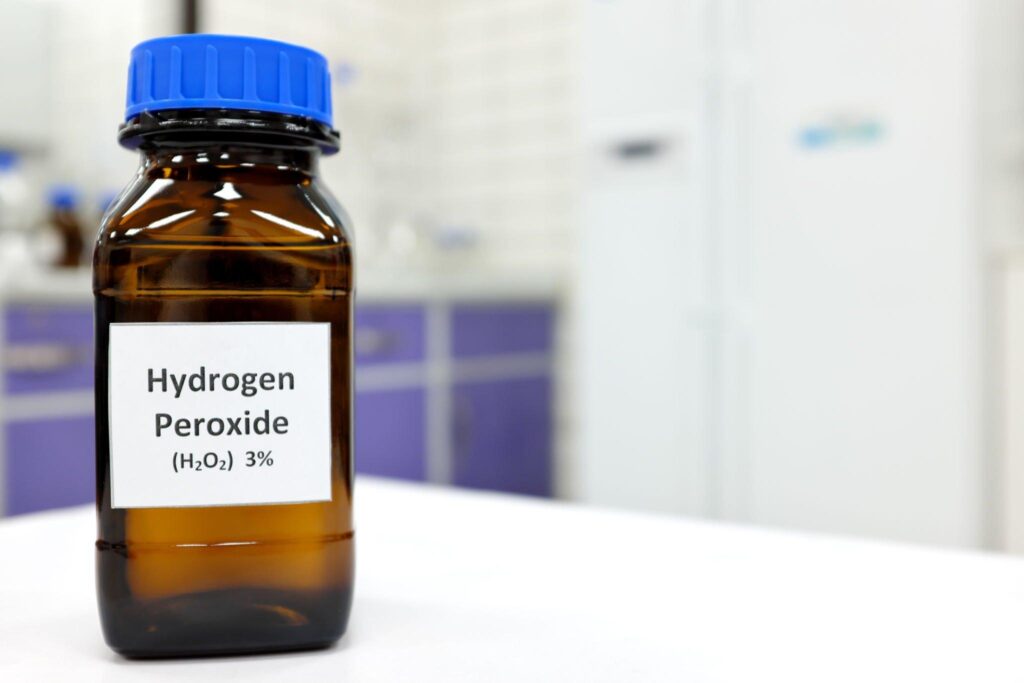
Hydrogen peroxide is a widely available and affordable home remedy for tooth infections. It possesses strong antimicrobial properties that can help combat bacterial infections and promote oral health.
One of the major benefits of hydrogen peroxide is its ability to minimize dental plaque, a sticky film that forms on teeth and can harbor harmful bacteria. By regularly rinsing with a solution of equal parts hydrogen peroxide and warm water, you can effectively reduce plaque buildup and prevent oral bleeding caused by gum disease.
To use hydrogen peroxide for tooth infections, simply mix equal parts of hydrogen peroxide and warm water to create a solution. Swish the solution around in your mouth for 30-60 seconds, making sure to reach all areas of your mouth and focusing on the infected tooth or gums. Spit out the solution and rinse your mouth with plain water afterward.
It’s important to note that hydrogen peroxide should always be diluted before use and should not be swallowed. This home remedy can provide temporary relief from tooth infections and help maintain oral hygiene, but it is not a substitute for professional dental treatment. If you have a severe tooth infection or persistent dental pain, it is crucial to seek dental care.
Incorporate hydrogen peroxide rinses into your oral care routine to harness its antimicrobial effect and contribute to a healthier mouth. However, remember to use it in moderation and consult a dentist if you have any concerns.
9. Oil pulling
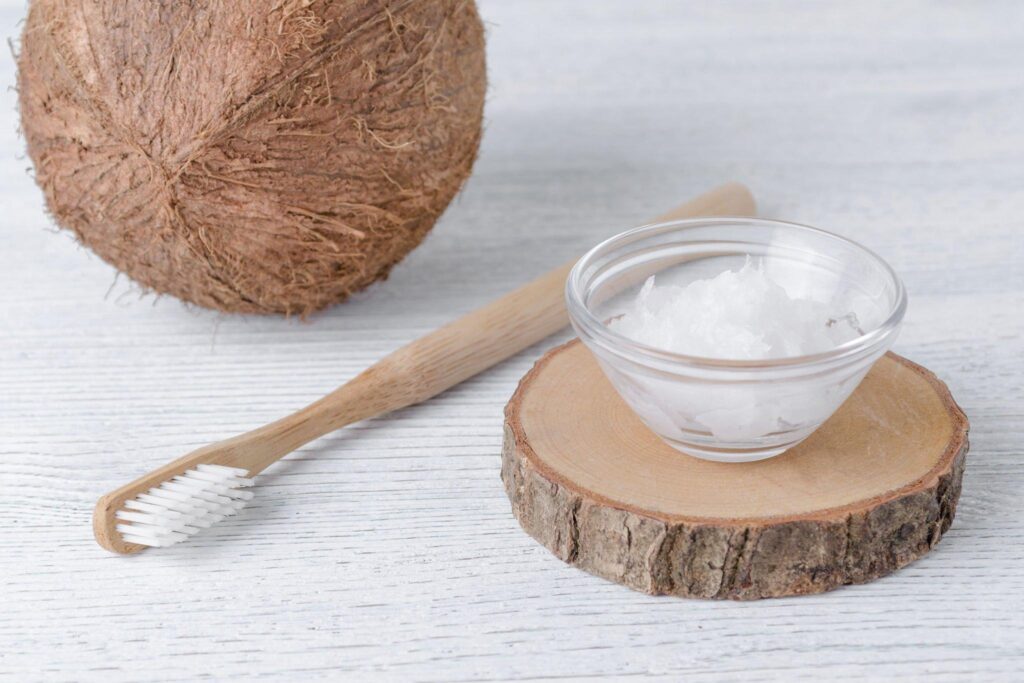
Oil pulling is an ancient practice that can be effective in reducing tooth infections and promoting oral health. To perform oil pulling as a home remedy for tooth infection, start by taking 1 tablespoon of raw coconut oil, sesame oil, or olive oil.
Take the oil in your mouth and vigorously swish it around through your teeth for up to 20 minutes. Make sure to reach all areas of your mouth, including the infected tooth or gums. The oil should cover your teeth and gums completely.
After the 20-minute swishing period, spit the oil out into a garbage can, as it can solidify and potentially clog pipes. Avoid spitting the oil in the sink or toilet.
Oil pulling is believed to help remove bacteria and toxins from the mouth, reducing the risk of tooth infections. Coconut oil, in particular, is known for its antibacterial properties, which may assist in fighting dental infections. However, it’s important to note that oil pulling should not replace professional dental treatment. If you have a severe tooth infection or persistent dental pain, consult a dentist for appropriate care.
Incorporating oil pulling into your oral hygiene routine, along with regular brushing, flossing, and dental check-ups, may contribute to maintaining good oral health and providing temporary relief from tooth infections.
10. Garlic

Garlic is a widely available kitchen ingredient that has been used for centuries as a natural remedy for various ailments. It offers both antibacterial and pain-relieving properties, making it an effective home remedy for tooth infections.
To utilize garlic for tooth infection, you can create a simple garlic paste. Start by peeling a clove of garlic and crushing it into a fine paste. You can use a mortar and pestle or a garlic press for this purpose. Once you have the paste ready, apply it directly to the infected area, such as the tooth or gums, using a clean cotton swab or your finger.
The antibacterial properties of garlic help to fight against the bacteria responsible for tooth infections, which can provide temporary relief. Additionally, garlic contains a compound called allicin, which acts as a natural pain reliever and can help alleviate the discomfort associated with tooth infections.
It is recommended to apply the garlic paste to the infected area multiple times a day for optimal results. However, it is important to remember that while garlic can offer temporary relief, it should not replace professional dental treatment. Persistent dental pain or severe tooth infections should be addressed by a dentist to avoid further complications.
Incorporating garlic into your oral health routine may assist in managing tooth infections, but it is always best to consult a dental professional for proper diagnosis and treatment.
11. Aloe vera gel

Aloe vera gel is another excellent home remedy for tooth infections. This natural gel has powerful antibacterial properties that can help fight off the infection and provide instant pain relief.
To use aloe vera gel for tooth infection, start by obtaining a fresh aloe vera leaf. Cut it open and extract the gel from inside. You can either directly apply the gel to the infected tooth or gums using a clean finger or a cotton swab. Make sure to cover the entire affected area.
The antibacterial properties of aloe vera gel help eliminate the harmful bacteria causing tooth infections. Additionally, the gel has soothing properties that can alleviate pain and reduce inflammation.
For optimum benefits, apply the aloe vera gel to the infected area several times a day. However, remember that while aloe vera gel can provide temporary relief, it should not replace professional dental treatment. Seek the advice of a dentist for severe tooth infections or persistent dental pain.
In conclusion, aloe vera gel is a natural remedy with antibacterial properties that can provide relief from tooth infections. Give it a try and experience the benefits of this soothing and healing gel.
When to call a dentist
When it comes to a tooth infection, knowing when to call a dentist is crucial. While natural remedies can provide temporary relief, they do not treat the infection itself. Ignoring a tooth infection can lead to serious health consequences, so it’s important to seek professional dental treatment.
There are certain symptoms that indicate a tooth infection requires immediate attention from a dentist. Persistent pain in the affected tooth or jaw can be a sign of a serious infection. If you experience pain accompanied by popping or clicking noises in your jaw, this may indicate a more severe problem that needs to be addressed.
It’s also important to be aware of any changes in your oral health. If you notice swelling, redness, or tenderness in the gums, it could be a sign of a dental infection. Additionally, fever, swollen lymph nodes, or bad breath can also be indicators that you need to call a dentist for evaluation and treatment.
Remember, while natural remedies can provide temporary relief, they are not a substitute for professional dental care. If you’re experiencing symptoms of a tooth infection, don’t hesitate to call a dentist and schedule an appointment. They will be able to accurately diagnose and treat the underlying cause of your tooth pain, ensuring your oral health is properly addressed.
How a dentist will treat a tooth infection
When it comes to treating a tooth infection, a dentist has several options depending on the severity of the infection. One common treatment is the removal of abscesses, which involves draining the pus-filled sacs that form as a result of the infection. This helps relieve pain and prevent the infection from spreading further.
In some cases, dentists may prescribe antibiotics to fight off the bacterial infection. Antibiotics can help reduce inflammation and alleviate symptoms while the body’s immune system works to heal the infection. However, they are usually used as a temporary measure until more definitive treatment can be performed.
A root canal treatment may be necessary for more severe cases of tooth infection. This involves removing the infected pulp tissues from within the tooth and disinfecting the root canals before filling and sealing them. A dental crown may also be placed on top of the tooth to restore strength and protect it from further damage.
To determine the appropriate course of action, a dentist will conduct a thorough examination. This may include taking digital X-rays and performing diagnostic tests to assess the extent of the infection and any damage to surrounding structures. Based on the findings, the dentist will develop a treatment plan tailored to the patient’s specific needs.
In some instances, if the infection spreads or causes a gum abscess, more invasive procedures or surgical intervention may be necessary. This can involve incision and drainage of the abscess or even extraction of the affected tooth to prevent further complications.
If you’re experiencing any symptoms of a tooth infection, it’s crucial to seek professional dental care promptly. A dentist will assess your condition and recommend the most appropriate treatment to alleviate pain, eliminate the infection, and restore your oral health.
What causes a tooth infection?
A tooth infection, also known as a dental abscess, can be caused by various factors. Poor oral hygiene is one of the most common causes. When proper brushing and flossing is neglected, harmful bacteria can accumulate in the mouth, leading to tooth decay and eventual infection.
Previous dental work or injury can also increase the risk of developing a tooth infection. Procedures such as fillings, crowns, or root canals can weaken the tooth’s structure and make it more susceptible to bacterial invasion. Similarly, a cracked or fractured tooth can create an entry point for bacteria, resulting in an infection.
Consuming sugary foods or beverages is another contributing factor. Sugar is a favored food source for bacteria in the mouth. When left uncleaned, these bacteria can produce acids that erode tooth enamel, creating cavities and facilitating infection.
Gum disease, or periodontal disease, can also lead to a tooth infection. As gum disease progresses, it causes the gums to recede, creating pockets where bacteria can accumulate and infect the roots of the teeth.
Lastly, individuals with a weak immune system due to underlying medical conditions, such as diabetes or autoimmune disorders, are more prone to tooth infections. A compromised immune system reduces the body’s ability to fight off bacteria, allowing infections to develop more easily.
It is important to maintain good oral hygiene, seek prompt dental care for any dental issues, and adopt a healthy diet to minimize the risk of developing a tooth infection. Regular dental check-ups and cleanings can also help identify and address any potential problems before they escalate into infections.
Symptoms of a tooth infection
A tooth infection, also known as a dental abscess, can cause a range of symptoms that can be quite uncomfortable. One common symptom is a painful throbbing sensation in the affected tooth. This throbbing can extend to the jawbone or even to the area near the neck.
Another symptom of a tooth infection is sensitivity to hot and cold temperatures. Drinking a hot beverage or eating ice cream may trigger sharp pain in the infected tooth. In some cases, the entire face may swell due to the infection, causing further discomfort and difficulty in facial movements.
Additional symptoms of a tooth infection may include sensitivity to pressure, such as when chewing or biting down on food. The affected tooth may become more sensitive and painful when pressure is applied. Fever can also develop as the body’s immune system responds to the infection.
Swollen lymph nodes in the neck or under the jaw can also be a symptom of a tooth infection. This swelling occurs as the body’s immune system tries to fight off the infection. In some cases, a salty fluid taste may be experienced in the mouth, which is a result of the dental abscess draining and releasing fluid.
It is important to note that a severe tooth infection can lead to difficulty in breathing or swallowing. This can occur when the infection spreads and causes swelling in the oral and throat area. If these symptoms occur, urgent dental and medical attention should be sought.
In conclusion, a tooth infection can cause symptoms such as a throbbing toothache, sensitivity to hot and cold temperatures, swelling in the face, fever, sensitivity to pressure, swollen lymph nodes, a salty fluid taste in the mouth, and difficulty breathing or swallowing. If you experience these symptoms, it is important to seek dental treatment to address the infection and prevent further complications.
FAQ
How do you get rid of a tooth infection at home?
Home remedies for tooth infections can be an effective way to reduce symptoms and speed up the healing process. First, it is important to maintain good oral hygiene by brushing and flossing regularly. This will help remove food particles and bacteria that could contribute to a tooth infection.
Additionally, consuming foods rich in vitamin D and calcium can help strengthen the teeth and bones, making them less susceptible to infection. Additionally, rinsing the mouth with warm salt water can help reduce inflammation and pain. Finally, applying a cold compress to the cheek or jaw can help reduce swelling.
What naturally kills a tooth infection?
Natural remedies can help fight a tooth infection and reduce symptoms. Certain essential oils, such as tea tree oil, clove oil, and oregano oil, have antibacterial properties that may help kill off bacteria that are causing the infection. Additionally, consuming foods high in antioxidants like cranberries or garlic can help boost the immune system and reduce inflammation.
Applying a warm compress to the affected area can also help alleviate pain and reduce inflammation. Finally, consuming foods rich in calcium and vitamin D can help strengthen the teeth and bones, making them less susceptible to infection.
How do you treat a tooth infection without antibiotics?
It is possible to treat a tooth infection without antibiotics by following the above-mentioned home remedies. First, proper oral hygiene should be maintained through regular brushing and flossing. Eating foods rich in calcium and vitamin D can help strengthen teeth and bones while consuming antioxidant-rich foods like garlic or cranberries can boost the immune system. Additionally, rinsing the mouth with warm salt water can help reduce inflammation and pain. Finally, applying a cold compress to the cheek or jaw can help reduce swelling.
What is the strongest natural antibiotic for tooth infection?
Clove oil is one of the strongest natural antibiotics for tooth infections. Clove oil has antibacterial, anti-inflammatory, and analgesic properties that can help reduce pain and inflammation associated with a tooth infection.
Additionally, garlic has been found to be effective against bacteria that cause oral infections. Garlic contains allicin, which has strong antimicrobial properties that can help kill off oral bacteria. Finally, tea tree oil is a natural antiseptic that has antibacterial and anti-inflammatory properties that can help reduce the symptoms of a tooth infection.

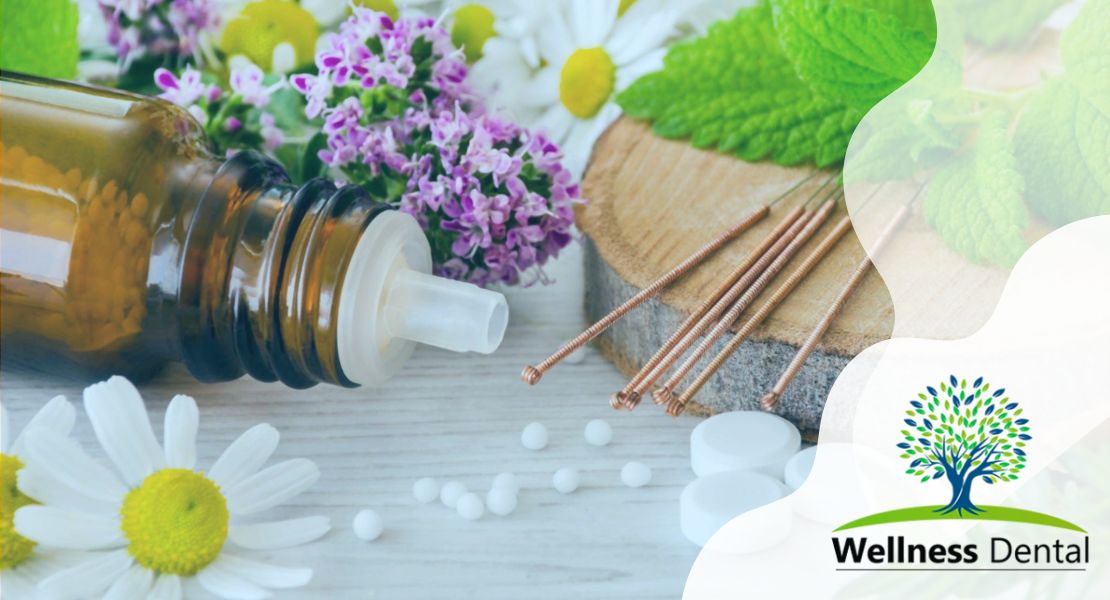


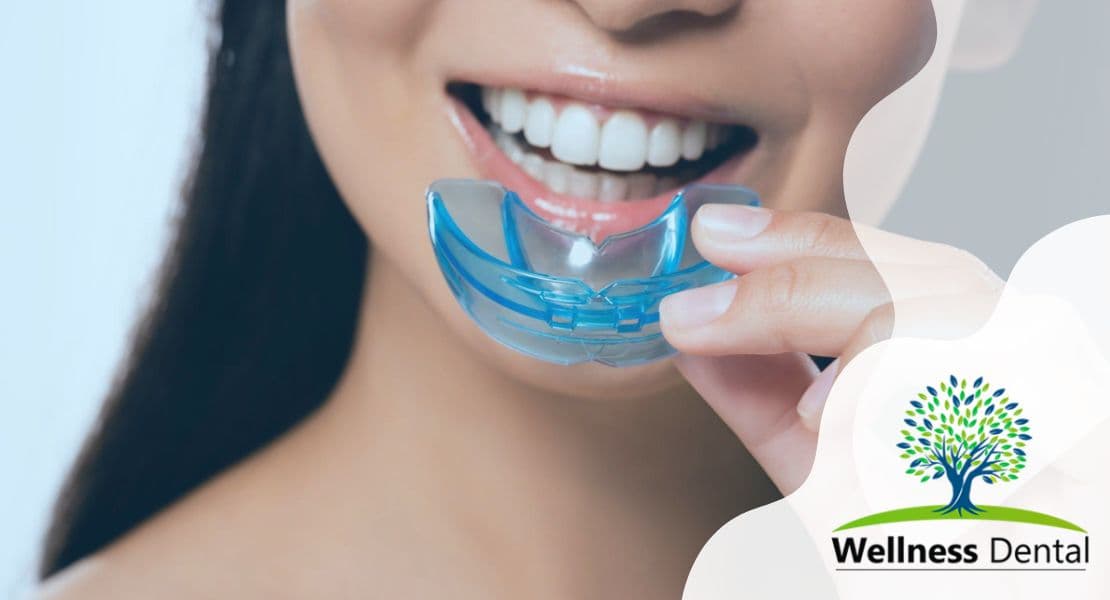


Thank you!